|
Communication is complicated. Face-to-face communication, which many would consider to be the simplest form of communication, becomes a challenge when you consider factors such as differences in language and culture, the use of body language, and tone of voice, etc. These factors inherently make text-based communication more difficult. This project seeks to address these issues through the research and design of communication systems and tools that allow users to gracefully convey such information effectively. |
CopyCat and PopSign are two games that help deaf children and their parents acquire language skills in American Sign Language. 95% of deaf children are born to hearing parents, and most of those parents never learn enough sign language to teach their children. As short-term memory skills are learned from acquiring a language, many deaf children enter school with the short-term memory of fewer than 3 items, much less than hearing children of hearing parents or Deaf children of Deaf parents. Our systems address this problem directly. |
Every day, ordinary Internet users engage with complex copyright laws. Particularly in the context of creative work and appropriation, they are making decisions related to legal areas that are notoriously gray. Where legal knowledge is imperfect, social norms and ethical intuitions fill in the gaps. This research attempts to understand how these decisions are made, how norms and knowledge differ in different creative communities, and what lessons can be derived from online community management and design. 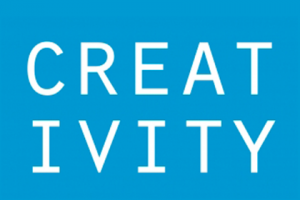 |
COSMOS (COmputational Skins for Multi-functional Objects and Systems) is an interdisciplinary collaborative project to design, manufacture, fabricate, and apply "computational skins". COSMOS consist of dense, high-performance, seamlessly-networked, ambiently-powered computational nodes in the form of 2D flexible surfaces that can process, store, and communicate sensor data. Achieving this vision will redefine the basis of human-environment interactions by creating a world in which everyday objects and information technology become inextricably entangled. |
|
We are working to develop digital tools to support COVID-19 social media monitoring and outreach by community-based trusted messengers in Georgia, with the goal of addressing COVID-19 vaccine hesitancy among Black and Latinx communities in the state. 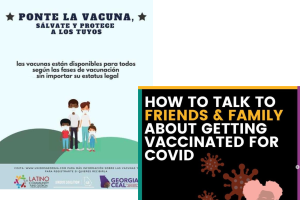 |
We are a team focused on increasing the comfortability of autonomous vehicles for people with ASD. A fully autonomous vehicle would afford individuals with ASD a safe and reliable form of transportation that requires no driving skills. Our project seeks to explore how to make individuals with ASD more comfortable using level 5 autonomous vehicles. |
Social media has quickly risen to prominence as a news source, yet lingering doubts remain about its ability to spread rumor and misinformation. Systematically studying this phenomenon, however, has been difficult due to the need to collect large-scale, unbiased data along with in-situ judgements of its accuracy. In this paper we present CREDBANK, a corpus designed to bridge this gap by systematically combining machine and human computation. Specifically, CREDBANK is a corpus of tweets, topics, events and associated human credibility judgements. |
|
|
Our project aims to examine whether it is feasible to build machine learning classifiers that can effectively predict an upcoming psychiatric hospitalization given social media data from platforms unseen in the classifiers' training data, despite the preliminary evidence on identity fragmentation between Facebook, Twitter, and Instagram. It also aims to explain any discrepancies in performance that are found during analysis between intra- and inter-platform classification. 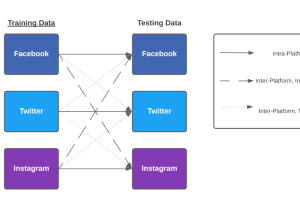 |
Our project develops a mobile teaching tool for cisgender Greek fellows/allies that promotes empathy-building in relation to their transgender and nonbinary peers. The tool aims towards the cisgender members of Greek life on Georgia Tech's campus. It helps users to explore what it means to be transgender or nonbinary while also being involved in Greek life on campus. Website: |
Georgia Tech is developing two online tools, the Work ACCESS assessment tool and the Assistive Software Knowledgebase product database, to help employees with disabilities and their employers figure out what types of accommodations (e.g., assistive technologies, strategies, universal features) might help them perform their jobs. |
|
|
In 2000 the United Nations announced the Millennium Development Goals, a set of development targets and objectives to reduce poverty and improve health, education, and the environment. These goals are set to be completed by 2015. The system of United Nations organizations is currently formulating a new set of development goals for beyond 2015. To create a more participatory process, the International Telecommunication Union uses an online platform to crowdsource the ideas and comments of youth around the world. 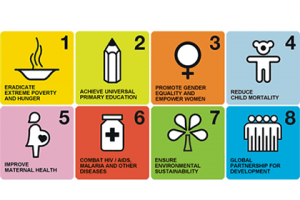 |
Designing effective CSCW systems in healthcare requires a careful consideration of the entire enterprise. This study uses computational text analysis and network visualization of topical terms and keywords to map the extant knowledge domain of CSCW in healthcare. The results are framed using a multi-level enterprise model, comprised of people, technology, process, and organization. Emerging trends and prominent patterns are identified. The study contributes to a broader understanding of CSCW research in healthcare and demonstrates the value of adapting an enterprise (as a) system lens. 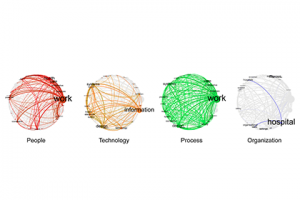 |
A key idea in CSLearning4U is that we can design CS learning opportunities. Simply wrestling an interpreter or compiler can't be the best way to learn about computer science. Throwing people into the deep end of the pool can teach people to swim, but there are better ways. We want to do better than a book for CS learning, and we want to design the phonics of computing education to integrate with the "whole language learning" of programming. 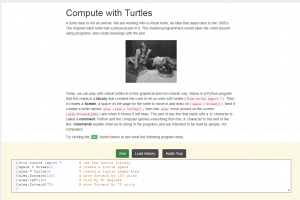 |


